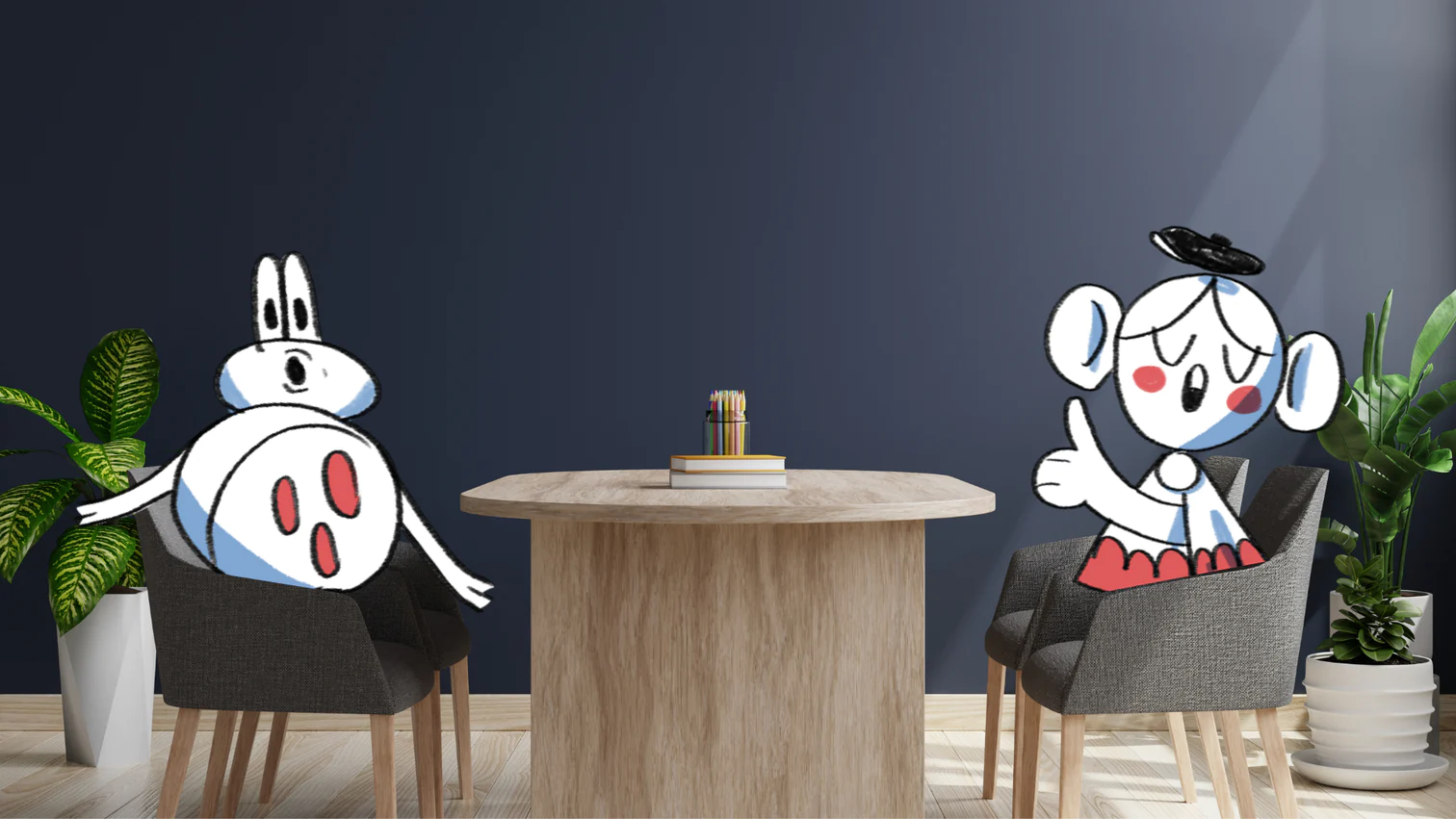“Tell me about yourself”
It’s the interview question with a million possible answers.
Do you wax lyrical about your experience and skills? Or talk up your personality and character traits? Maybe mention your extensive volunteer work?
To be honest, any of those things could be what they’re looking for. But if you really want to wow, it’s as much about what you say as how you say it.
And for that… you need a story!
Stories are memorable, interesting and help keep you on track, even when you’ve got a lot to say. And Steve Rawling (Author of Storyteller Tactics) helped out the Pip Decks community with a few ideas to get started. Here’s his advice for telling the story of you.
The perfect ‘tell me about yourself’ answer
The perfect answer might depend on the company you’re interviewing with and your own career path, but it will definitely feature a few key ingredients:
- Highlight your strengths and unique selling points
- Sound humble, not braggish
- Include evidence to back up your point
For this, there are some Storyteller Tactics that hit the nail on the head, and some great prep work you can do to help you really make the most of this question!
Top tips and tactics for ‘tell me about yourself’
Before you crack on with the story itself, Steve recommends taking a look at the Character cards. “Ask yourself ‘What character do I want to come across as?’. Hero and Guide (see below) could help you frame your own character, for example”.
Additionally, take a look at the person specification for the role and make note of the traits they put a lot of emphasis on. Sure, you need to match the skills and experience – but they’ve got your CV and they already know whether you’re up to scratch there. It’s your personality, work ethic and character strengths that could really swing things in your favour in an interview.
Hero & Guide
“Hero & Guide lets you – the candidate – talk about how you’ve helped others, which is far more generous than ‘aren’t I brilliant?’”, says Steve. It’s also a really good way to answer interview questions about a time you worked as part of a team, or solved a problem!
You set the scene – what is the person you helped trying to achieve? Why are they struggling? Then you swoop in as an ‘expert guide’ to save the day. You can choose from a range of ‘guide profiles’ depending on the personal traits or journey you want to showcase to the interviewers. For a straightforward interview that’s the next step on your career ladder, try The Sage or The Defender.
Then, combine this with a Story Arc tactic to highlight how your contribution turned the tables and allowed the person you helped to snatch victory from the jaws of defeat.
If you get it right, they’ll lap it up. It shows problem solving skills, teamwork and humility – a powerful combination.
Thoughtful Failures
Steve suggests adding Thoughtful Failures to the mix, too. This approach is also great for the problem solving question that inevitably comes up. It helps you frame mistakes as the outcome of a thoughtful, considered process and as valuable lessons, rather than ‘here’s a tale about a time I royally messed up’. We all love those stories, but perhaps not in an interview situation.
You walk the interviewers through ‘what went wrong’ with a focus on thought processes, decisions, actions and communication rather than people and blame. Then you look at what was learned and how things changed as a result of that mistake.
What’s it About?
This tactic is great for helping you succinctly explain what it (that’s you) is all about. It walks you through a range of angles – ‘initiating a change’ fits well here as you’re seeking a new job. But ‘personal benefit’ is worth exploring, too; your work ultimately benefits someone, and by taking this next step, you are changing (improving?) how you create that value.
Trust Me, I’m an Expert
This tactic helps you walk the fine line between talking yourself up and bragging, by pitching you as an expert and then backing it up with trustworthy evidence. Trust Me, I’m an Expert helps you pin down your values and expertise and then asks you a series of thought-provoking questions to help you uncover the stories that show these in action.
Pitch Perfect
And then, of course – Pitch Perfect! Your pitch is a classic tool to have in your belt, but beware of sounding too ‘pitchy’ in a conversational interview.
It sets out the perfect story arc to use for your ‘tell me about yourself’ answer, framing you as an opportunity, with the potential to do great things and an understanding of the hard work you’ll have to put in to achieve them.
Bonus interview tips
And finally, check out Drive Stories for a set of questions that could really help you out, not just with the ‘tell me about yourself’ interview question, but with lots of others, too! Oh and Cut to The Chase can help you add moments that spike interest throughout your answers. So that’s a fair handful of tactics to have in your back pocket (not literally) at your next job interview!


If you leave us your email, we'll let you know if we update this guide based on your feedback.